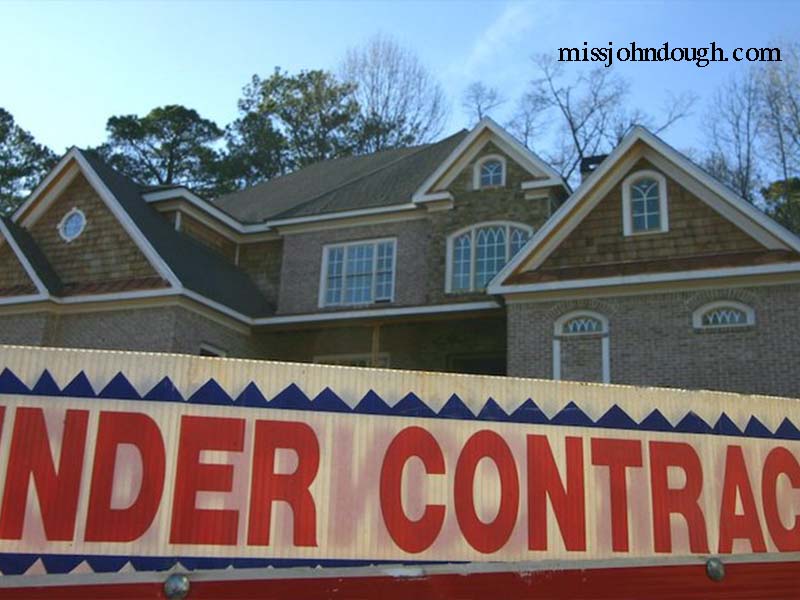When you hear the phrase “under contract” in real estate, it can seem a bit confusing if you’re new to the market. In simple terms, when a property is under contract, it means that the buyer and the seller have reached an agreement on the terms of the sale, but the deal hasn’t officially closed yet. The property is not fully sold but is in the process of being transferred from the seller to the buyer.
In this article, we’ll explore what it means for a property to be under contract, what happens during this phase, and how it impacts both buyers and sellers. We’ll also take a deeper dive into key real estate terminology and processes associated with a property being under contract.
What Does “Under Contract” Really Mean?
When a home is “under contract,” it means that the seller and buyer have entered into a binding agreement. This agreement signifies that the buyer has agreed to purchase the home at a specified price and on certain conditions, and the seller has agreed to sell it under those terms. However, the sale has not been finalized yet, and there are still several steps to go through before the property changes hands.
It’s important to note that “under contract” doesn’t mean the property is off the market entirely. In many cases, properties under contract are still shown to other potential buyers, especially if the contract falls through.
The Under Contract Process: Steps to Closing
The process that follows once a property is under contract is often where the complexities of a real estate deal come into play. Here’s a breakdown of the typical steps:
- Offer and Acceptance: Once the buyer makes an offer on the property, and the seller accepts it, the property is officially under contract. At this point, the seller cannot entertain other offers unless the contract has contingencies that allow it.
- Inspection Period: After a home is under contract, the buyer typically has a period to conduct a home inspection. This step is crucial, as it allows the buyer to discover any potential issues with the property, such as structural problems or outdated systems.
- Appraisal: If the buyer is financing the home through a lender, an appraisal will likely be conducted to ensure the property is worth the agreed-upon purchase price. If the appraisal comes in lower than expected, this can trigger renegotiations or even cause the deal to fall through.
- Contingency Period: Many contracts come with contingencies, which are conditions that must be met before the sale can proceed. Common contingencies include financing approval, home inspection results, and appraisal value. If these conditions aren’t satisfied, the contract can be canceled without penalties.
- Closing: Once all contingencies are met and financing is secured, the final step is the closing. This is when the buyer signs the necessary paperwork, the seller receives payment, and the property officially changes ownership.
Why is a Property “Under Contract” Important?
Understanding when a property is under contract is vital for both buyers and sellers. Here’s why:
- For Buyers: If you’re interested in a property that’s under contract, it’s crucial to know that while it’s not officially sold, it’s in the final stages of negotiation. You might still be able to make a backup offer, which could be considered if the initial contract falls apart.
- For Sellers: As a seller, having your property under contract can give you peace of mind, knowing that you’re moving forward with the sale. However, it’s essential to recognize that even though a contract is in place, there are still a few hurdles before the sale is final.
Differences Between “Under Contract” and “Pending”
You may also encounter the term “pending” in real estate listings. While the terms are often used interchangeably, they do have subtle differences:
- Under Contract: Refers to the phase where a buyer and seller have agreed on the terms but the deal is still in progress. The property could still face setbacks, such as failing inspections or issues with financing.
- Pending: Typically indicates that the sale is nearly finalized. In many cases, once a property is marked as pending, the final paperwork is already being processed, and the closing date is set. There are fewer chances for the sale to fall through at this stage.
Common Terms Associated with “Under Contract” Status
Several other terms are often used alongside “under contract” in real estate. Here are some important ones to understand:
- Contingencies: These are conditions written into the contract that must be met for the sale to proceed. If any contingency fails (for example, the buyer can’t secure financing), the buyer may cancel the deal.
- Escrow: This refers to the third-party service holding the buyer’s deposit and other funds during the transaction. The funds remain in escrow until all conditions of the sale are met, at which point they are transferred to the seller.
- Due Diligence Period: This is the period in which the buyer investigates the property and confirms that it meets their needs. This could involve inspections, reviewing the title, and verifying that the seller has the legal right to sell the property.
- Home Inspection Contingency: A clause in the contract that gives the buyer the right to inspect the property. If issues are found, the buyer can request repairs or back out of the sale.
What Happens if a Property Under Contract Falls Through?
Even though a property is under contract, it can still fall through. Here are some common reasons why:
- Financing Issues: If the buyer is unable to secure financing or the loan doesn’t go through as planned, the contract may be canceled.
- Failed Inspections: If the home inspection uncovers significant problems with the property that the seller is unwilling to address, the buyer can back out, and the deal may collapse.
- Appraisal Issues: If the property’s appraisal comes in lower than the sale price, the buyer may not be able to secure the necessary financing, or they might choose to renegotiate the price.
- Title Problems: If the title search reveals issues like unpaid liens or other legal claims, it can delay the sale or cause it to fall apart.
- Other Contingencies: Depending on the specific contingencies in the contract, any unmet conditions can cause the deal to fall through.
How to Handle a Property That’s Under Contract as a Buyer
If you’re a buyer and the property you’re interested in is under contract, here are some tips:
- Stay in Touch with Your Agent: Let your real estate agent know you’re interested in the property. They can keep you updated on any developments, such as the deal falling through or the seller accepting backup offers.
- Consider Making a Backup Offer: In some cases, sellers will accept backup offers. If the current contract falls through, the seller may reach out to you with the opportunity to move forward with your offer.
- Explore Other Properties: While waiting for a property under contract to fall through can be tempting, it’s also wise to continue searching for other homes that meet your criteria.
How to Handle a Property That’s Under Contract as a Seller
If you’re a seller with a property under contract, here are some key things to keep in mind:
- Stay Prepared for the Closing Process: Make sure all the required paperwork is in order and that any agreed-upon repairs are completed in a timely manner.
- Be Aware of Contingencies: Understand the contingencies in the contract, and be ready to respond quickly if an issue arises.
- Have a Backup Plan: If the sale falls through, it’s important to have a plan for relisting the property or dealing with the consequences.
Conclusion
Understanding what “under contract” means in real estate is crucial for both buyers and sellers. It signifies a critical phase in the buying and selling process, but it doesn’t necessarily mean that the sale is final. By being aware of the steps, terms, and contingencies involved, you can navigate the process with greater confidence.
Whether you are buying or selling, understanding the under contract status is key to making informed decisions in the fast-moving world of real estate. Remember that even if a property is under contract, there are still opportunities, and things can change quickly.


